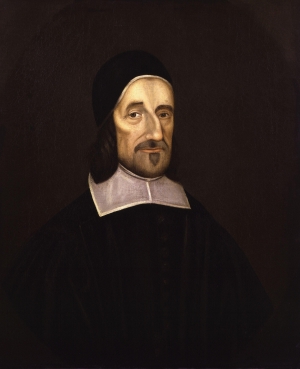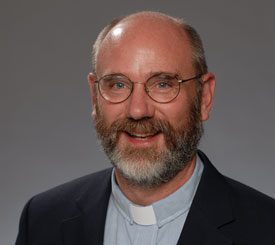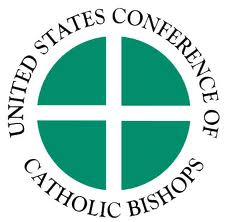There is a phrase in journalism called “burying the lead” (or, since about 1979, the cloying variant lede). The lead (lede) is the paragraph in which the most important, salient facts are contained. In the old days (c. 1975), the writer was . . . Continue reading →
Search results for “William Perkins”
The Gospel Is Not Common
Modern Reformed and evangelical Christians inherited the language of “common grace” (Gemeene Gratie) from Abraham Kuyper (1837–1920), a pastor, scholar, theologian, newspaper publisher, educator, and politician (he served as Prime Minister of the Netherlands) of enormous energy and accomplishment. He not only . . . Continue reading →
Always Abusing Semper Reformanda
The Reformation churches have some wonderful slogans that are chock full of important truths. Sometimes, however, these slogans can be misconstrued, misreported, and misunderstood. With the possible exception of sola Scriptura (by Scripture alone), none of these slogans has been mangled more . . . Continue reading →
Don’t Just Stand There. Come On In!
Kevin DeYoung writes about a conference just held at his congregation with Collin Hansen. He makes a couple of points to which I want to respond. As a minister who has spent a fair bit of time calling people to Christ and . . . Continue reading →
Yes Virginia, There Is A Law-Gospel Distinction
When Martin Luther appeared before the Diet of Worms (1521), on the day after he asked for time to think, his examiner asked whether all the books stacked on the table were his. Luther began to answer by distinguishing between the various . . . Continue reading →
Useful Myths And Reformed Identity Markers
The Oxford English Dictionary (OED) first provides multiple definitions of the word “myth.” The first says, “A traditional story, typically involving supernatural beings or forces, which embodies and provides an explanation, aetiology, or justification for something such as the early history of . . . Continue reading →
Select Bibliography Of The Reformation
(rev. January 2006) © R. Scott Clark, 2006. All Rights Reserved. 1. References Bagchi, David and David C. Steinmetz, ed. The Cambridge Companion to Reformation Theology (Cambridge: Cambridge University Press, 2004). Bauman, M., M. Klauber, ed., Historians of the Christian Tradition (Nashville, 1995). Brady, T. A., . . . Continue reading →
A Brief Glossary Of The Medieval And Reformation Church
Revised 2007, 2011. This is a study guide for my students that began life in the mid-1990s as a handout revised from a glossary by Alister McGrath for Blackwells. § A Abelard, Peter (1079-1142). Author of Sic et Non, an influential scholastic collection of . . . Continue reading →
HT611 Reformed Scholasticism
Course Description A study of the theology and methods of Reformed orthodoxy from 1561–1725. Special attention will be given to soteriology. Fall. 2 Credits. Course Goals — Academic Goal: To enable the student to understand and discuss intelligently the development of Reformed academic . . . Continue reading →
An Annotated Reformed Reading List (Updated)
From time to time students ask what books must they have in their libraries before they leave seminary. This list contains my suggestions. This could be much longer, but it would be less useful. Since I teach historical theology, this list is weighted with those sorts of texts. Continue reading →
Are God’s Demands Always Gracious? (Updated)
David Robertson is pastor in the Free Church of Scotland. He has a blog and recently he reviewed Tullian Tchividjian’s latest book, One Way Love. There has been some back and forth and most recently Robertson has written an Open Letter. In . . . Continue reading →
Contra Leithart: No, The Reformation Isn’t Over
Before You Reject At Least Understand It
In a post on the First Things blog today, Peter Leithart declares the “End of Protestantism.” It’s not at all clear, however, that he understands what he wants to end. He begins with a sociological observation about contemporary English non-conformists and uses . . . Continue reading →
Things That Don’t Help The 2K Discussion (Updated)
R. C. Sproul, Jr published a post on Thursday 26 September answering the question, “What is 2k Theology?” (HT: David Murray). It gets some things right, some of what it says is a matter of opinion and debate, and some of what . . . Continue reading →
A Caricature Of Calvinism
Mark Dever sent me a note the other day about Edward Taylor (1642–1729). Mea culpa but I’m not familiar with his work so I did did an online search and, of course, the first result was Wikipedia. On my way to the . . . Continue reading →
Was There a Mainstream of Reformed Orthodoxy?
It’s being argued (on discussion lists and in private emails) that there was never any mainstream of Reformed theology in the 16th and 17th centuries. The proof? Some cat or other emails to say, “here’s an sentence from this important 17th century . . . Continue reading →
Of Catholicity and Confusion
One of the most confusing aspects of Protestant-Romanist dialogue is trying to determine “who speaks for Rome?” and trying to answer the question, “What does Rome believe?” One reason it can be difficult to answer these questions is that Rome likes it . . . Continue reading →
Who Are the True Catholics? (5a): Justification
Part 4: Who are the True Catholics (4): Assurance of Salvation In theological terms, there were two principles of the sixteenth-century Protestant Reformation: the formal principle and the material principle. The first, the formal principle, was the doctrine that Scripture is the . . . Continue reading →
Deconstructing Puritanism
In “Beware the Puritan Paralysis” Trevin Wax cautions us about a tendency to introspection. He makes a very important point: Too many times, we dress up our introspection with flowery terms like “accountability” and “mortification” and “gospel-centered change.” Even if all these . . . Continue reading →
Who Are the True Catholics? (4) The Assurance of Salvation
Part 3: Original Sin Perkins’ third point against Rome concerned the assurance of salvation. According to Perkins, the Protestants and Rome agree that: A man in this life may be certain of salvation; and the same thing does the Church of Rome . . . Continue reading →
We Are Not Heretics or Schismatics
It is not because we have renounced any article of the catholic faith. We are not heretics. We cordially receive all the doctrines contained in that Symbol which is known as the Apostles’ Creed. We regard all doctrinal decisions of the first six ecumenical councils to be consistent with the Word of God, and because of that consistency, we receive them as expressing our faith. We therefore believe the doctrine of the Trinity and of the person of Christ as those doctrines are expressed in the symbols adopted by the Council of Nicea AD321, that of the Council of Constantinople AD381 and more fully that of the Council of Chalcedon AD451. Continue reading →














